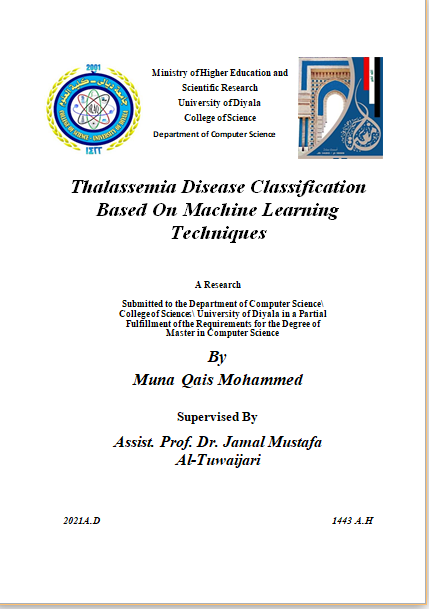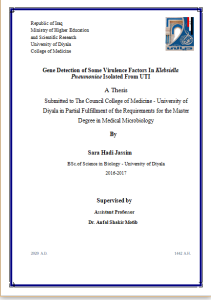ABSTRACT
Thalassemia is considered one of the most common genetic blood disorders that has received excessive attention in the medical research fields worldwide. It cannot be cured , but an early detection and classification using screening process is the best way to prevent the disease. If early classification is done, patients can get the right treatment. It helps them increase their life expectancy and reduce the risk of thalassemia to the next generation.
In this thesis, efficient thalassemia classification system have been design to increase the accuracy and decrease the error rate in the diagnosis process. This system based on two proposed approaches for classifying thalassemia disease. The first proposed approach is based on four machine learning technique which include artificial neural network (ANN), decision tree (DT), k-nearest neighbor (KNN) and logistic regression (LR). This approach consist of two main stages: pre-processing and classification of thalassemia disease .The second proposed approach based on two deep learning techniques , these are consist of convolutional neural network (CNN) and deep neural network (DNN).
The proposed system has been tested by using two thalassemia dataset .The first type of dataset contain 391 sample with nine features and split into 30% for testing and 70% for training and the second type of dataset contain 7108 image with nine type of erythrocytes and split into 20% for testing and 80% for training. The comparison results show that the proposed system has efficient diagnosis performance and can be used as a promising tool for thalassemia disease diagnosis compared to another existing method where the accuracy rate of first proposed approach for first dataset using ANN is 99%, DT is 99%, LR is 99% and KNN is 98%. The result of second proposed approach for the second dataset using deep learning technique has an average accuracy of 99% for CNN and 83% for DNN.





